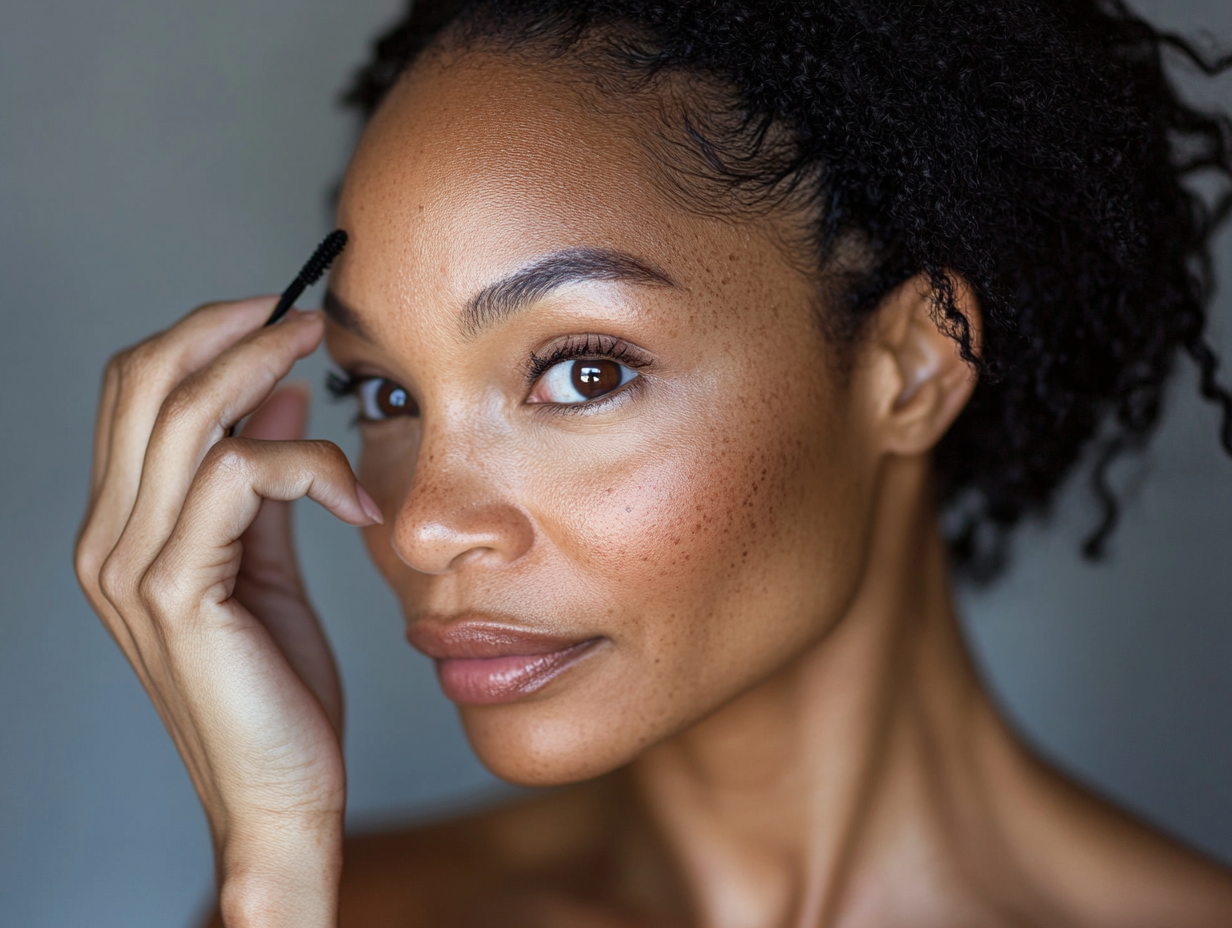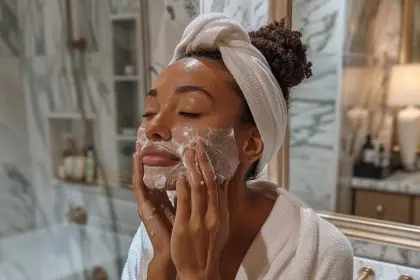Slapping on makeup every single day and wondering why your skin keeps acting up? Your full-coverage foundation might be slowly but surely wreaking havoc on your skin barrier while you’re busy looking flawless. The relationship between daily makeup wear and skin health is way more complicated than the beauty industry wants you to believe.
Your skin barrier is basically a protective shield made up of oils, dead skin cells, and beneficial bacteria that keep the good stuff in and the bad stuff out. When this barrier gets compromised, your skin becomes reactive, dehydrated, and prone to breakouts – which then makes you want to wear even more makeup to cover up the problems you’re unknowingly creating.
The truth is that makeup itself isn’t necessarily the villain in this story. It’s more about how you’re using it, what’s in it, and whether you’re giving your skin adequate recovery time. Think of it like wearing shoes – they’re not inherently bad for your feet, but wearing the wrong ones every day without breaks can definitely cause problems.
When makeup becomes a suffocating blanket
Daily makeup wear, especially full-coverage foundations and long-wearing formulas, can create an occlusive barrier that prevents your skin from breathing and functioning normally. Your skin naturally sheds dead cells and produces oils throughout the day, but heavy makeup can trap all of this cellular debris against your face.
This trapped layer of dead skin, oil, and makeup creates the perfect breeding ground for bacteria and can clog pores in ways that lead to persistent breakouts. Your skin might start producing even more oil to compensate for feeling suffocated, leading to that frustrating cycle where you need more coverage to hide problems that the coverage itself is helping to create.
Long-wearing and waterproof formulas are especially problematic because they’re designed to resist your skin’s natural oils and moisture. While this makes them great for special occasions, using them daily can disrupt your skin’s normal renewal process and leave residue that’s difficult to remove completely.
The harsh reality of makeup removal
Here’s where things get really problematic – many people don’t remove their makeup thoroughly enough, leaving traces of product that accumulate over time. Even if you think you’re cleansing properly, some formulas are designed to stick around, and daily wear means you’re constantly building up layers of residue.
The makeup removal process itself can also damage your skin barrier if you’re using harsh cleansers or scrubbing too aggressively to get everything off. You might be creating micro-tears in your skin or stripping away protective oils in your quest to get completely clean.
Double cleansing becomes absolutely essential when you wear makeup daily, but many people skip this step or don’t do it effectively. Oil-based cleansers followed by water-based ones are usually necessary to break down makeup completely without over-cleansing your skin.
Ingredients that slowly sabotage your skin
Many makeup products contain ingredients that can gradually compromise your skin barrier with repeated daily use. Silicones, while great for creating smooth application, can build up over time and prevent your skin from functioning normally. Some preservatives and fragrances can cause low-level irritation that becomes more problematic with constant exposure.
Talc, commonly found in powder products, can be drying and potentially irritating when used daily. Even mineral makeup, often touted as gentler, can cause issues if you’re sensitive to zinc oxide or titanium dioxide and exposing your skin to these ingredients constantly.
The pH of some makeup products can also disrupt your skin’s natural acid mantle, which is crucial for maintaining a healthy barrier. Your skin naturally sits at a slightly acidic pH, but many makeup products are more alkaline, potentially throwing off your skin’s natural balance.
Signs your makeup routine is backfiring
Your skin will usually give you clear signals when daily makeup wear is becoming problematic. Increased sensitivity to products that never bothered you before is often the first warning sign. Your skin might start stinging or burning when you apply makeup or skincare products.
Persistent breakouts in areas where you apply makeup most heavily, especially along your hairline, jawline, or around your nose, can indicate that your products are clogging pores or irritating your skin. These breakouts often don’t respond well to typical acne treatments because they’re caused by external irritation rather than internal factors.
Your skin might also start looking dull, rough, or uneven in texture despite your efforts to cover these issues with makeup. This happens when your skin barrier is compromised and can’t maintain proper hydration and renewal processes.
Finding balance without giving up your routine
The good news is that you don’t necessarily have to choose between wearing makeup and having healthy skin. Focus on choosing non-comedogenic, breathable formulas that won’t suffocate your skin. Look for makeup with skincare benefits, like hyaluronic acid or niacinamide, that can actually support your skin barrier.
Give your skin regular breaks from makeup when possible, even if it’s just one day a week. This allows your skin barrier to reset and recover from the daily stress of product application and removal.
Invest in proper makeup removal tools and techniques. Use gentle, effective cleansers and take your time removing every trace of product before applying your nighttime skincare routine.
Most importantly, pay attention to how your skin responds to your makeup routine and be willing to adjust when you notice signs of barrier damage. Your skin’s health should always take priority over temporary coverage.















